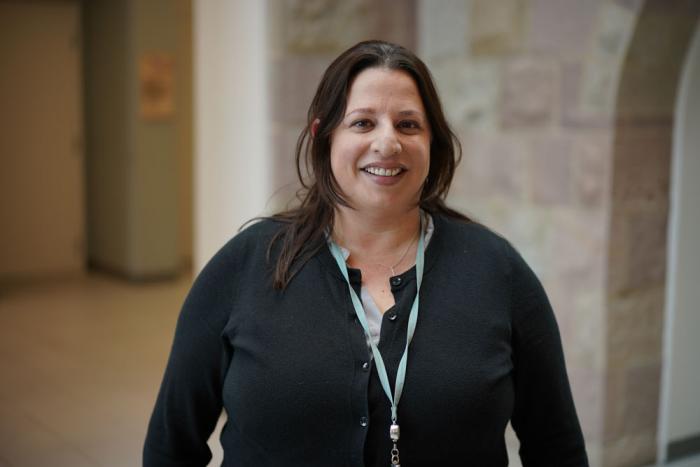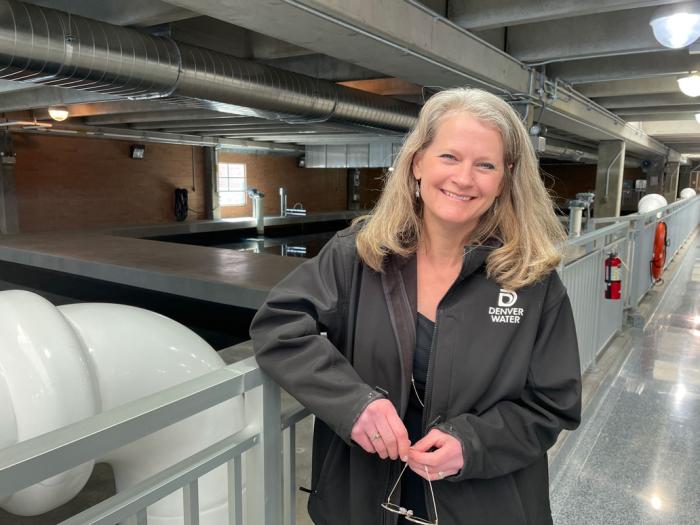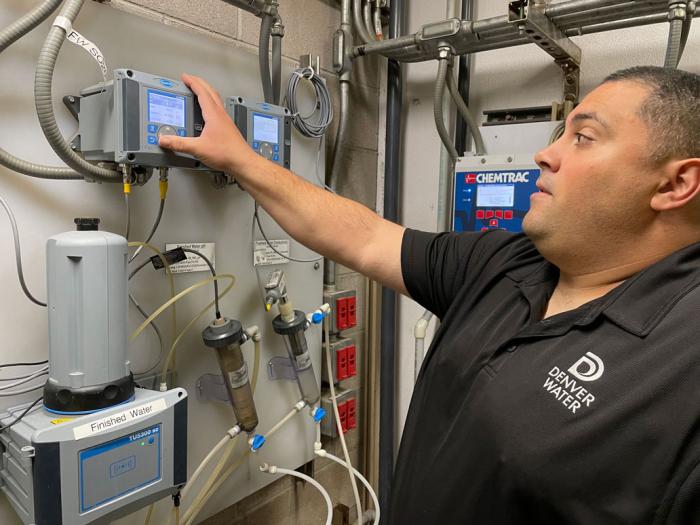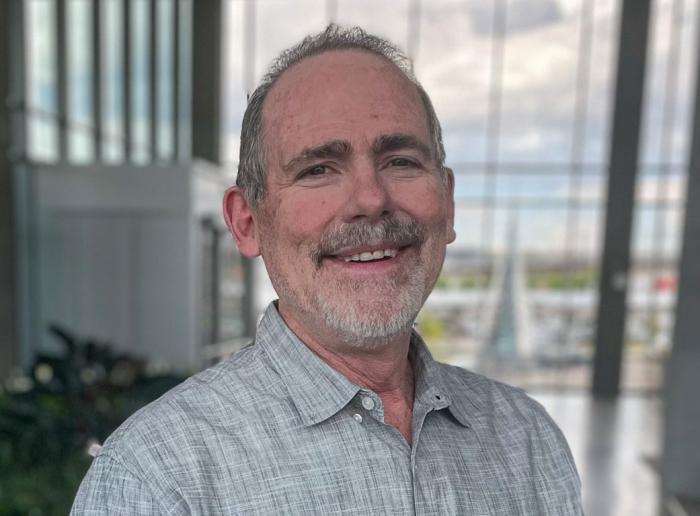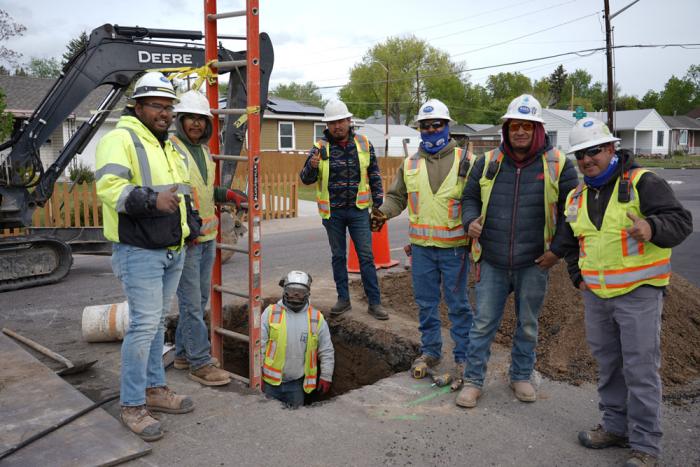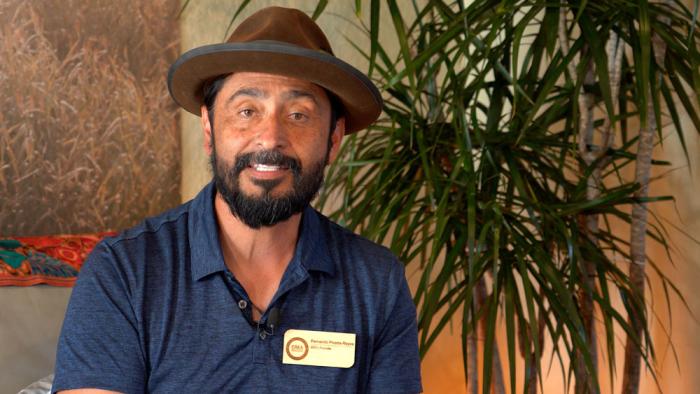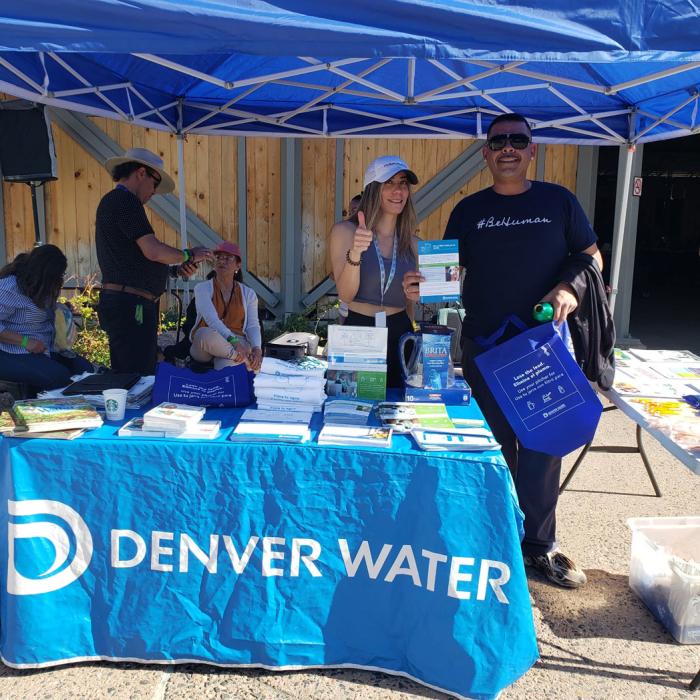Notched: 25,000 lead service lines replaced
Denver Water’s groundbreaking effort to protect its customers from lead in drinking water passed a major milestone in May with the replacement of more than 25,000 old, customer-owned lead service lines.
There is no lead in the water Denver Water delivers to customers and lead service lines — which are owned by the customer and carry water from the utility’s water main in the street into homes and other buildings — are the primary source of lead in drinking water. When Denver Water launched its Lead Reduction Program in January 2020, it aimed to replace an estimated 64,000 to 84,000 lead service lines in its service area, at no direct cost to the customer, over a 15-year time frame.
Since then, federal funding received in 2022 has helped to accelerate the replacement work. In 2023, the program replaced a total of 6,891 lead lines — far above the nearly 5,000 lines the utility is required to replace every year.
“Replacing 25,000 lead service lines is really unprecedented for any program like this in the United States. No other utility working on this issue has replaced that many lead lines in their communities, and we’ve done it in just over four years,” said Alexis Woodrow, Denver Water’s manager of the Lead Reduction Program.
It’s not that bad: The top 10 things to know about Denver Water replacing your service line.
In addition to replacing lead service lines with lead-free copper lines, the program works to pinpoint which buildings have lead service lines, provide free water filters for customers in the program to use until six months after their lead line is replaced, maintain a slightly elevated pH of the water for an additional layer of protection from lead and has a broad communications and outreach effort to help customers through the program.
We asked a few people who’ve been involved in different aspects of the program to reflect on the program’s achievements, and what the milestone means.
Alexis Woodrow: Manager of the Lead Reduction Program
I’m so proud of the efforts of every person and every partner who’s been involved with this program. We’re all working together to meet this common goal — to help protect people from lead in drinking water.
It’s hard to remember now, but we launched this program in January 2020, at the beginning of the pandemic. Many people didn’t want to open their doors to anyone, and here we were asking customers to allow strangers into their homes. On the plus side, it was an opportunity to rethink how we could connect with people and replace these lead lines safely.
We conduct virtual community meetings that have drawn thousands of people, who all received the same information at the same time from Denver Water in a forum where they could ask questions. We equipped our contractors with protective masks and sanitizers to be as non-intrusive as possible.
For customers not in the program, who don’t have a lead service line, they’re benefiting too from the systemwide improvement in improved water quality due to raising and maintaining the pH levels. In addition, as we continue replacing the lead service lines, we are removing the primary source of lead in drinking water from our community.
Watch this time loop to watch 25,000 lead service lines (in purple) get replaced (in green):
And for customers who are waiting for us, we appreciate their patience. I appreciate their ongoing participation to keep filtering their water and responding when we reach out to them. We are leveraging federal funding to go faster than we initially anticipated and we’re constantly looking for ways to get everyone as quickly as possible.
Ultimately, I am grateful to work with such a talented group of people who all want to do the right thing for public health and who work very hard to make this program successful — and they do it with a smile on their face.
Nicole Poncelet-Johnson: Denver Water’s head of water quality and treatment
I’m so proud of all the teams that were part of the work in 2018 and 2019 that led to the Environmental Protection Agency granting Denver Water the variance that created the Lead Reduction Program, and all the work the teams have done since 2020. Looking back, this program has taught us a lot.
One, it’s important to challenge the status quo when it comes to complex problems like protecting public health from lead. In this case, the status quo called for adding orthophosphate to the water to protect people from their lead pipes. Adding orthophosphate would have had long-term, costly environmental consequences downstream of Denver.
Using extensive data from our research on corrosion control and water from lead service lines we demonstrated to EPA that we could do something different. By raising the pH of the water, accelerating the replacement rate of lead service lines and providing water filters, we could protect people from lead better and faster than by adding orthophosphate.
Two, it taught us that a region of stakeholders can come together and create solutions that are better for future generations.
Join the people providing our community with safe, clean water at denverwater.org/Careers.
Three, hard work and taking risks at the local level can lead to nationwide impacts. All the work we have done to date is helping other utilities and regulators develop a path forward that is more protective of public health when it comes to lead in drinking water.
Four, controlling the pH of the water we deliver at a higher level has improved overall water quality; we receive fewer complaints about the taste and odor of the water we deliver. So, all customers benefit from the program.
More importantly is the dedication of Denver Water’s corrosion control team, which consists of several people from supply, treatment, water quality, distribution, and instrumentation and controls. These folks work behind the scenes monitoring pH levels of the water throughout our system, collaborating weekly to make sure it’s stays in a very small, very tight range. They are the reason we have better water quality and such a successful corrosion control treatment program.
Jeff Carpenter: The contractors’ construction manager
I’ve worked on a lot of projects in my career and this one is unique. All the people working on this program, we know we’re helping people by replacing those lead service lines, protecting them from lead and improving their health.
I’m the contractors’ construction manager for the Lead Reduction Program, overseeing more than 200 people. These are the different construction contractors, the men and women who are out on the streets talking to customers, in customers’ homes doing the actual replacements and also checking on the quality of the work. I’m also project manager for AECOM, one of the main contractors on the program, managing AECOM’s engineers, data scientists and GIS specialists who are working on the program.
But with this program, when we talk to customers about it, we’re all Denver Water.
I credit the success of this program to the relationships and the partnership we have, from top to bottom. From Denver Water’s leadership to the top-notch contractors and the incredible people doing the work, everyone treats everyone professionally and with respect.
We’ve built a team with hundreds of individuals with a purpose, and we have built, maintained and quickly adjusted the program as needed. It’s like adjusting the train and laying the tracks at the same time you’re moving down the tracks at 60 miles an hour, all the while working with health and safety at top of mind — and making it look easy to the customer. We get calls from other companies and utilities, asking us how we made this happen.
My father, Tom Carpenter, was a surveyor for Denver Water for more than 45 years. So, between growing up and now working on Denver Water’s Lead Reduction Program, it’s pretty incredible for me. Almost all my life, Denver Water has put shoes on my feet and food on my table one way or another.
He’d think what we’re doing is really cool, and so important.
Fernando Pineda-Reyes: The Ambassador
I’m from a city about 90 kilometers south of Mexico City and founded CREA Results here in Denver in 2006 to promote community, research, education and awareness. I believe that if we combine those things, we can benefit the community.
CREA Results talks to people in the community wherever they are, like school and church events, gatherings, meetings.
As one of Denver Water’s Ambassadors for the Lead Reduction Program, CREA Results is representing Denver Water when we say that “We mean well and we’re here to help.” Often, we’re the first ones in the community to tell people good things are coming, that they should be expecting them — and in the meantime they should use program’s water filters to protect themselves and their families.
For the program, there are forms that need to be signed and Denver Water’s people have to come into the home to replace the lead service line.
But sometimes, people fear letting someone into the house. They worry they might be reported if they have family members who are undocumented living with them, or that dirt might be on the carpet. Some people don’t know who Denver Water is or why they’re in the program, or why it’s OK to open the box with a water filter that was delivered to their door.
We tell them that they’re in Denver Water’s program, that Denver Water sent them the water filter and why and how they should use it. We tell them that Denver Water will replace the lead service line and they don’t need to pay.
We come from a message of love to tell them we’re here, we’re here to help you with the lead service lines and you can call us, and you can call Denver Water.
Being at 25,000 lead lines replaced, beyond it really, that means we’re doing something the right way.
Matt Ocepek: The customer
We moved into the Hilltop neighborhood in 2021, and I’m not sure we knew anything about lead pipes — or that our home had a lead service line. Denver Water sent me a free test kit, so I collected water samples and sent them back for testing. The results told us we had a lead service line.
The program sent us a water filter and pitcher, and we’re huge water drinkers — so we drink a lot of filtered water using a system we put on the tap.
I thought it would be a long time before we got a new line. Then, Denver Water notified me they were replacing lines on our block and sent us consent forms to sign. Two really nice people came to our house and explained to us what would happen during the replacement work.
They replaced our line in February 2024. The workers had to cut a hole in the wall to get the line into the house, which we knew would happen — the people had warned me about it up front. I thought the crew was professional and they wore shoe covers the whole time they were in our house.
I’m stoked about this program. Honestly, this is the first time that I feel like my money is being used on something I can see. Plus, it’s just nice to see that Denver Water is taking care of us, that they don’t want us to be drinking water that has lead in it.
The communication was clear, the crews showed up on time, they did what Denver Water said they would do. I was impressed.
And, we have a baby girl now. Her name is Lillian. It’s nice to know she’s protected.


